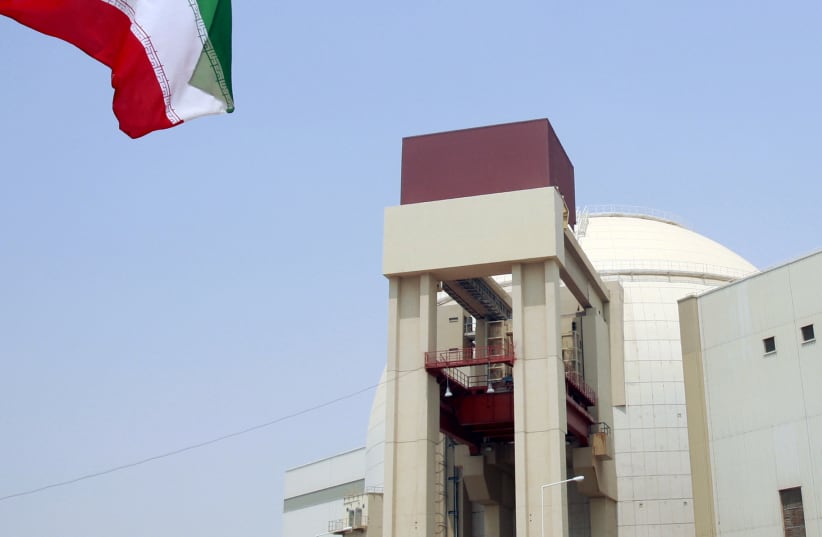A lot is not known about Iran’s newly announced move on Monday to enrich uranium up to the 20% level, but at maximum speed, a top nuclear expert has told The Jerusalem Post that its nuclear breakout time to a bomb could be cut to only six weeks.Institute for Science and International Security president David Albright said that there were many variables, such as how many IR-1, IR-2ms or even IR-4 or IR-6 centrifuges were being used.Albright also said that as long as the Islamic Republic was stopping at the 20% level, ironically, it could take six months or more to significantly cut down the breakout time to a nuclear weapon.Currently, experts have said that even as Tehran has enough low-level enriched uranium for several nuclear bombs, that because it has not gone above the 5% enrichment level, it remains around three months away.Basically, the idea is that the ayatollahs continue to enrich uranium at the same level so that their potential for more nuclear bombs increases, while they do not actually come any closer to their first actual nuclear weapon.In contrast, after about a half year of sustained uranium enrichment to the 20% level, Albright is saying the time to get to an actual nuclear weapon, if Iran chose to rush toward one, would be cut in half to only six weeks.The six weeks would be needed to enrich up from 20% to the weaponized level of uranium at 90%.Meanwhile, also on Monday, Iranian Foreign Ministry spokesman Saeed Khatibzadeh pushed back hard on comments about Iran’s ballistic missile program made by incoming President-elect Joe Biden administration’s National Security Advisor Jake Sullivan on Sunday in an interview with CNN.As reported by the Iranian media Mehr website, Khatibzadeh said: “Iran’s defense capability has never been and will not be negotiated.”“Iran’s defense capability is pursued independently based on the country’s needs. Once in the JCPOA and Resolution 2231, the issue of missiles has been mentioned and resolved,” he added.Stating that the United States knows that Iran’s nuclear program is peaceful, Khatibzadeh said: “As a result, the missile issue is a secondary issue, and arms embargoes have been lifted.”“We will not renegotiate any parts of the JCPOA, and these are internal comments and have no value for Iran. Our response is the full and unconditional implementation of the JCPOA and compensation for the events of the past,” the Foreign Ministry spokesman added.Sullivan had said in his CNN interview that the US would agree to rejoin the 2015 nuclear deal in rolling back sanctions if Iran returned to the deal’s nuclear limits and agreed to follow-on negotiations regarding its ballistic missile program.One of a few major holes in the 2015 deal that many Israeli critics have highlighted was that it lacked any teeth to limit the Islamic Republic’s ballistic missile testing.Though Tehran claims its ballistic missiles are defensive, the same missiles can be fitted with nuclear warheads and any testing can help Iran advance toward that goal.Sullivan did not say how they would convince Iran to agree to new limits on its ballistic missiles once the US had already rejoined the nuclear deal, but Biden himself has also mentioned the issue previously in an interview with The New York Times’ Thomas Friedman.Responding to Iran's announcement, the IAEA told the Post on Monday that, "director-general Rafael Mariano Grossi has informed IAEA Member States that Iran today began feeding uranium already enriched up to 4.1% U-235 into six centrifuge cascades at the Fordow Fuel Enrichment Plant for further enrichment up to 20%."
"IAEA inspectors were present at the site to detach the Agency’s seal from a cylinder with the feed material. The cylinder was then connected to the feeding line to start the production of uranium enriched up to 20%," said the spokesman's statement.
Further, the IAEA added, "The six cascades had been reconfigured as three sets of two interconnected cascades, comprising a total of 1044 IR-1 centrifuges. Iran had previously informed the Agency of its intention to start producing uranium enriched up to 20%."Former IDF intelligence chief Amos Yadlin tweeted in response that Iran's jumping enrichment to 20% was "its most significant and blatant violation to date" of the nuclear deal.Yadlin said that the Islamic Republic is trying to box in the incoming Biden administration by setting new facts on the ground leading into nuclear negotiations.He added that Tehran had calculated that "the Trump administration will not have sufficient time to respond," with only two weeks left in office.The former intelligence chief said that Israel must press Biden to use the sanctions leverage he will inherit from Trump to get Iran to agree to enough add-ons to the 2015 nuclear deal that its holes will be filled.
